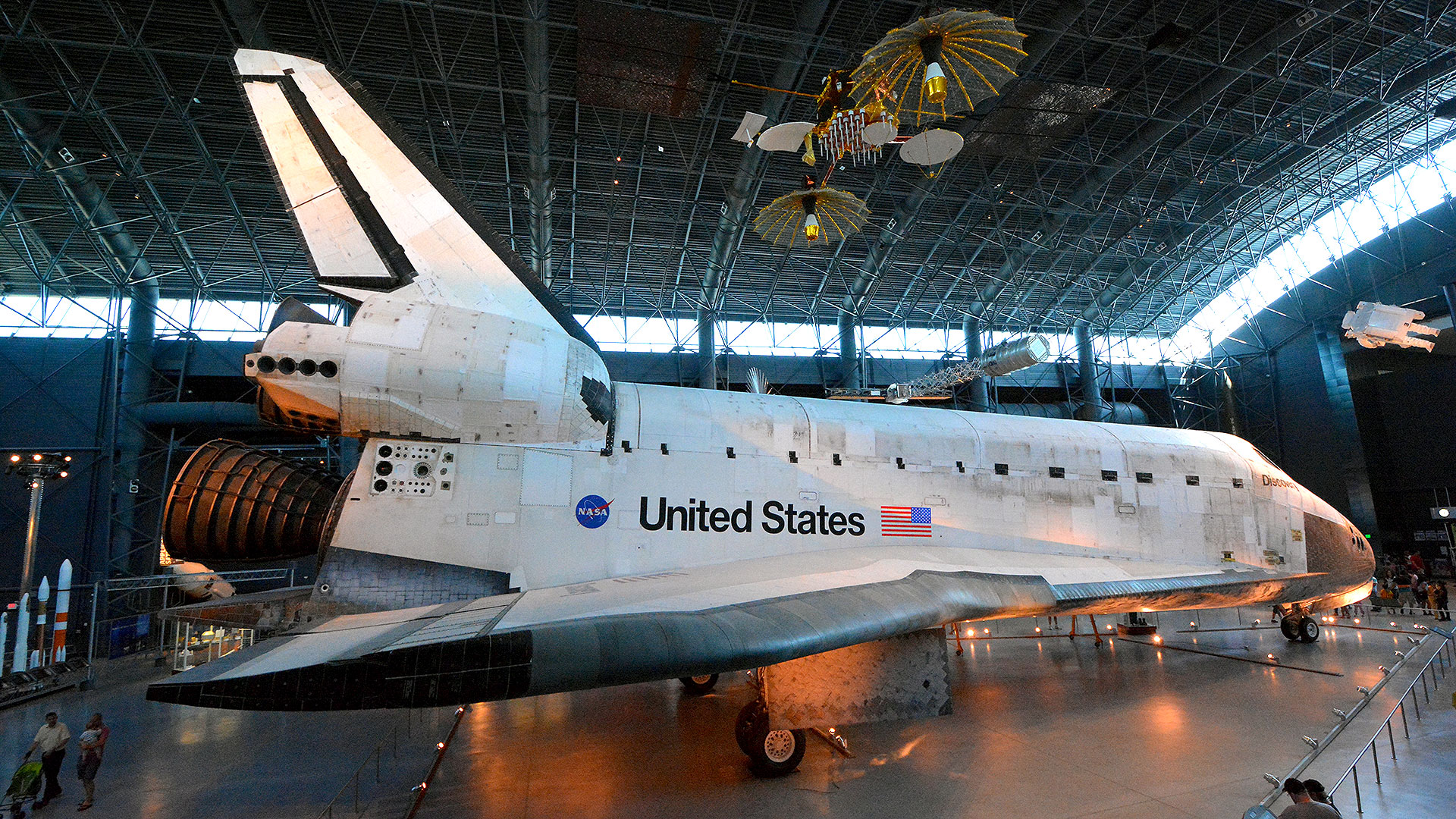US military picks 3 companies to test nuclear propulsion in cislunar space
DARPA tapped Blue Origin, Lockheed Martin and General Atomics for the tests.

The Defense Advanced Research Projects Agency (DARPA) has picked three big space companies for the first phase of a larger project to test nuclear propulsion above low Earth orbit by 2025.
General Atomics, Blue Origin and Lockheed Martin each received contracts for the Demonstration Rocket for Agile Cislunar Operations (DRACO) program's first phase. While DARPA did not disclose the contract values in its announcement, media outlet Space News reported General Atomics received $22 million, Lockheed Martin $2.9 million and Blue Origin $2.5 million.
The teams were selected due to their ability to develop and deploy advanced systems for reactors, propulsion and spacecraft, DARPA officials said in a statement. The agency particularly emphasized the need for "rapid maneuver" for military systems but said this is difficult in space with conventional systems.
Related: US military eyes nuclear thermal rocket for missions in Earth-moon space
"Current electric and chemical space propulsion systems have drawbacks in thrust-to-weight and propellent efficiency," the agency said in the same release, adding that nuclear thermal propulsion (NTP) is expected to address these common problems.
NTP systems use fission reactors that heat up propellants (such as hydrogen) to high temperatures, spewing the gas at high speed through nozzles for thrust. The thrust-to-weight ratio with NTP is about 10,000 times higher than electric propulsion systems, and propellant efficiency (also known as specific impulse) is anywhere from two to five times greater than conventional chemical rockets, DARPA officials wrote in a description of the DRACO program.
The first phase of the program has two tracks, lasting 18 months, with each company pursuing different paths. Track A includes the preliminary design of the nuclear thermal propulsion reactor, along with the propulsion subsystem. Track B will create an "operational system spacecraft concept" to meet future mission objectives, including a demonstration system.
Breaking space news, the latest updates on rocket launches, skywatching events and more!
Track A reactor development will be performed by General Atomics, while Track B work will be pursued independently by Blue Origin and Lockheed Martin, DARPA added. "DRACO's Phase 1 is expected to inform follow-on phases for detailed design, fabrication, and on-orbit demonstration. Any follow-on phases will be solicited by DARPA in a future announcement," the agency said.
This month's DARPA announcement follows on from a $14 million task order for DRACO awarded to Gryphon Technologies, a company in Washington, D.C. that provides engineering and technical solutions to national security organizations, in September 2020.
The past NASA administration also expressed interest in the potential of nuclear propulsion, especially for slicing the travel time to Mars by half to about three or four months, compared with chemical propulsion. The agency has said it hopes to get astronauts to the Red Planet in the 2030s.
"That is absolutely a game-changer for what NASA is trying to achieve," former NASA administrator Jim Bridenstine said during a meeting of the National Space Council in 2019. "That gives us an opportunity to really protect life, when we talk about the radiation dose when we travel between Earth and Mars," he added.
Follow Elizabeth Howell on Twitter @howellspace. Follow us on Twitter @Spacedotcom and on Facebook.
Join our Space Forums to keep talking space on the latest missions, night sky and more! And if you have a news tip, correction or comment, let us know at: community@space.com.

Elizabeth Howell (she/her), Ph.D., was a staff writer in the spaceflight channel between 2022 and 2024 specializing in Canadian space news. She was contributing writer for Space.com for 10 years from 2012 to 2024. Elizabeth's reporting includes multiple exclusives with the White House, leading world coverage about a lost-and-found space tomato on the International Space Station, witnessing five human spaceflight launches on two continents, flying parabolic, working inside a spacesuit, and participating in a simulated Mars mission. Her latest book, "Why Am I Taller?" (ECW Press, 2022) is co-written with astronaut Dave Williams.
